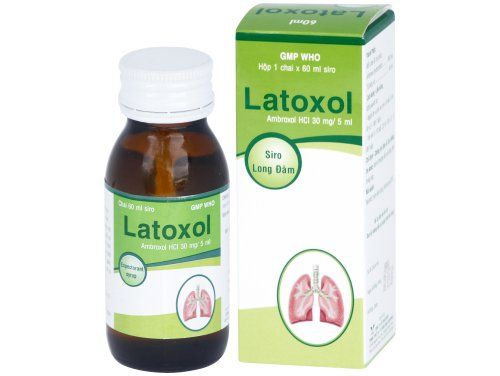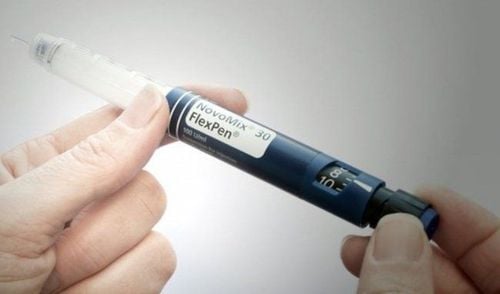This is an automatically translated article.
Heat intolerance is an abnormal sensitivity to heat. People with heat intolerance may have unusual reactions to heat such as intense sweating or anxiety. Heat intolerance is not a disease, but a symptom of a pre-existing medical condition.1. What is heat intolerance?
Heat intolerance is a general symptom that can refer to multiple reactions to heat, also known as heat hypersensitivity. Some people cannot tolerate heat simply because they don't like the heat. Others feel uncomfortably hot at a temperature that others are comfortable with. Some people can develop severe or even life-threatening symptoms in response to heat. According to the Centers for Disease Control and Prevention (CDC), heat intolerance may have a relationship with heat-related illnesses, such as heat stroke, which is responsible for more than 600 cases. deaths in the United States each year.People who cannot tolerate heat need to be cautious about extreme heat, especially when there are other risk factors for heat-related illnesses. Most people don't usually like extreme heat, but for people with heat intolerance they can always feel extreme discomfort in hot weather. Once you have heat intolerance, your body cannot regulate its own temperature properly. The body regulates temperature by maintaining a balance between hot and cold. The hypothalamus is the part of the brain that regulates body temperature. When it gets too hot, the hypothalamus sends signals through nerves to the skin and tells the skin to increase sweating to cool the body.

Cảm thấy rất nóng ở nhiệt độ ấm vừa phải là một trong số những triệu chứng thường gặp ở người không dung nạp nhiệt
2. Symptoms of heat intolerance
Symptoms of heat intolerance can vary from person to person but most include:Feeling very hot at moderately warm temperatures Excessive sweating Not sweating enough while hot Exhaustion and Fatigue in warm weather Mood swings in extreme heat People with certain chronic conditions, such as multiple sclerosis, may feel their symptoms temporarily worsen in the heat. Some people can neither tolerate heat nor cold. Other signs of heat sensitivity include: headache, dizziness, weakness, cramps, nausea, and a faster-than-normal heartbeat.
3. Causes of Heat Intolerance
People who cannot tolerate heat may develop a blood disorder that affects their autonomic nervous system. The autonomic nervous system helps regulate automatic body functions, including the body's response to heat. Several health conditions disrupt blood metabolism, including:Diabetes Alcohol use disorder Parkinson's disease Guillain Barre syndrome Mitochondrial disease Other causes of heat intolerance include:
Degree age: Infants, children under 4 years of age, and older adults may be more sensitive to heat. This sensitivity increases the likelihood of heat-related illnesses, such as stroke. Medications: Some medications can also change the body's response to heat by reducing sweating. Anticholinergics, for example, used to treat many psychiatric conditions and Parkinson's disease, can decrease sweating and increase sensitivity to heat.

Một số loại thuốc có thể làm thay đổi phản ứng của cơ thể với nhiệt bằng cách giảm tiết mồ hôi
4. Treatment of heat intolerance
People with heat intolerance should discuss their symptoms with their doctor, especially if symptoms come on suddenly or get worse.To treat heat intolerance, doctors will focus on treating any underlying medical conditions. Treatment will vary greatly depending on the underlying condition of each patient. For example, people with Graves' disease may need radiation therapy to restore normal thyroid levels. In many cases, heat intolerance cannot be prevented or treated at all. A person with a spinal cord injury can experience difficulty in extreme heat no matter what treatment they choose. Avoid the heat if possible and adopt strategies for safe management, any time needed in hot conditions will be helpful in the long run. Ways to manage heat tolerance include:
Avoid direct sunlight Stay in a cool environment Rehydrate the body Wear loose, light-colored clothing, and wear lightweight cotton fabrics that let air in your skin and cool your body Avoid drinking alcohol in hot weather Take a cool shower or swim in a pool Avoid strenuous activities in hot weather or in a warm room People with heat intolerance should carefully monitor themselves signs of illness such as nausea, dizziness, vomiting, rapid sweating, muscle cramps, headache, extreme fatigue or fainting, mood swings.
Seek immediate medical attention when the body is not able to sweat, even if the body temperature is above 103°F or confusion loss of consciousness.

Bổ sung đủ nước cho cơ thể là một trong các cách quản lý khả năng chịu nhiệt
5. Prevention of Heat Intolerance
Monitoring health conditions, which can cause heat intolerance, will help prevent symptoms. Heat control solutions you can take include:Maintain a healthy body weight Get plenty of exercise to maintain fitness Limit or avoid alcohol and drug use, as they can increase sensitivity to heat Control blood sugar Drink lots of water Outdoor activities such as swimming and festivals in warm weather are often very appealing to us. But for those who can't stand the heat, it's a big hurdle. However, the right handling strategy and a few cooling measures can make it easier to control the sensation of heat.
Heat intolerance can be a sign of a person's overall health. Anyone experiencing heat intolerance, whether new or worsening, should speak to a doctor for early diagnosis and treatment.
To help customers control their health in the best way and minimize the risk of disease, Vinmec International General Hospital has developed a general health checkup package for all ages, different objects. The examination will help the doctor find out the cause of the disease even if there are no signs so that there can be timely intervention.
Please dial HOTLINE for more information or register for an appointment HERE. Download MyVinmec app to make appointments faster and to manage your bookings easily.
Reference source: healthline.com - medicalnewstoday.com












